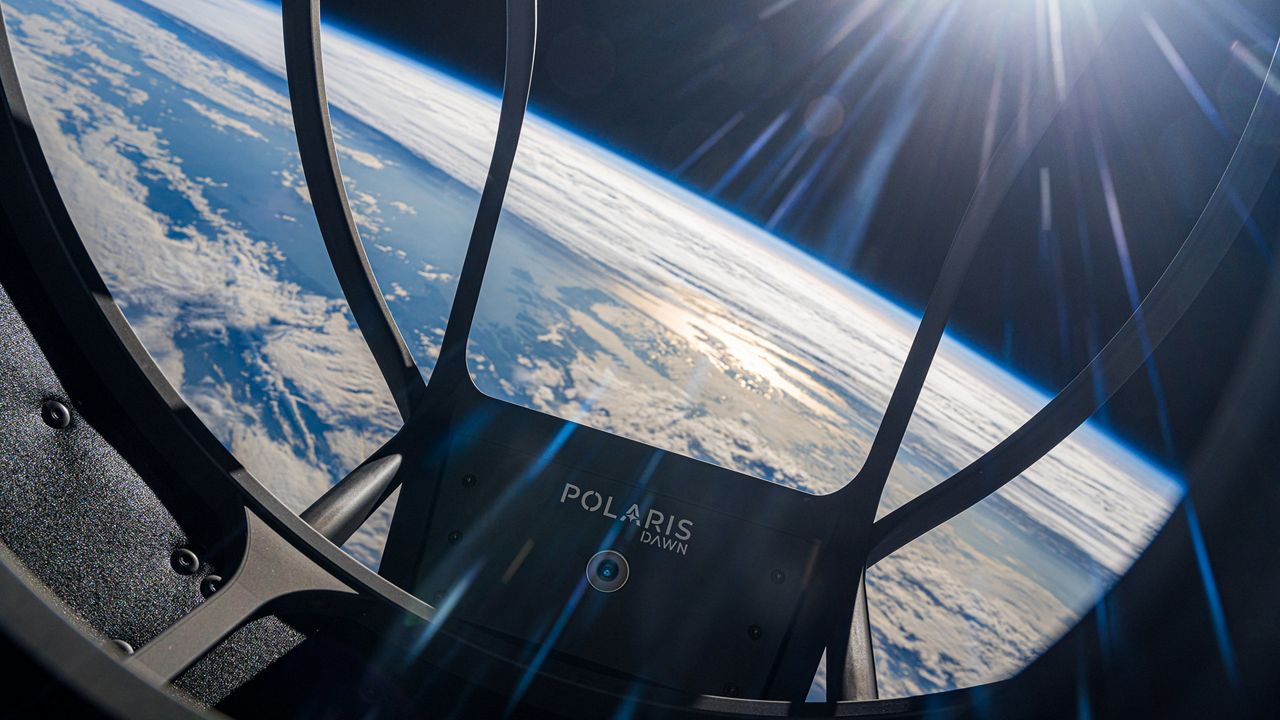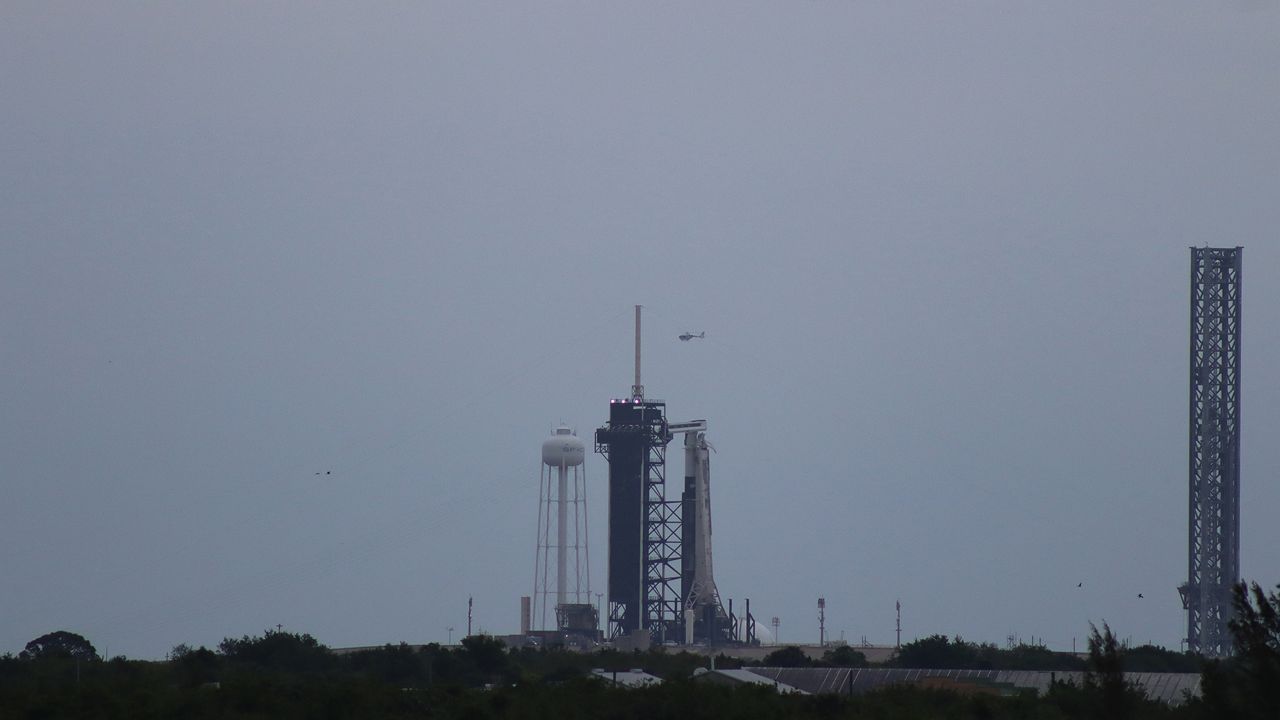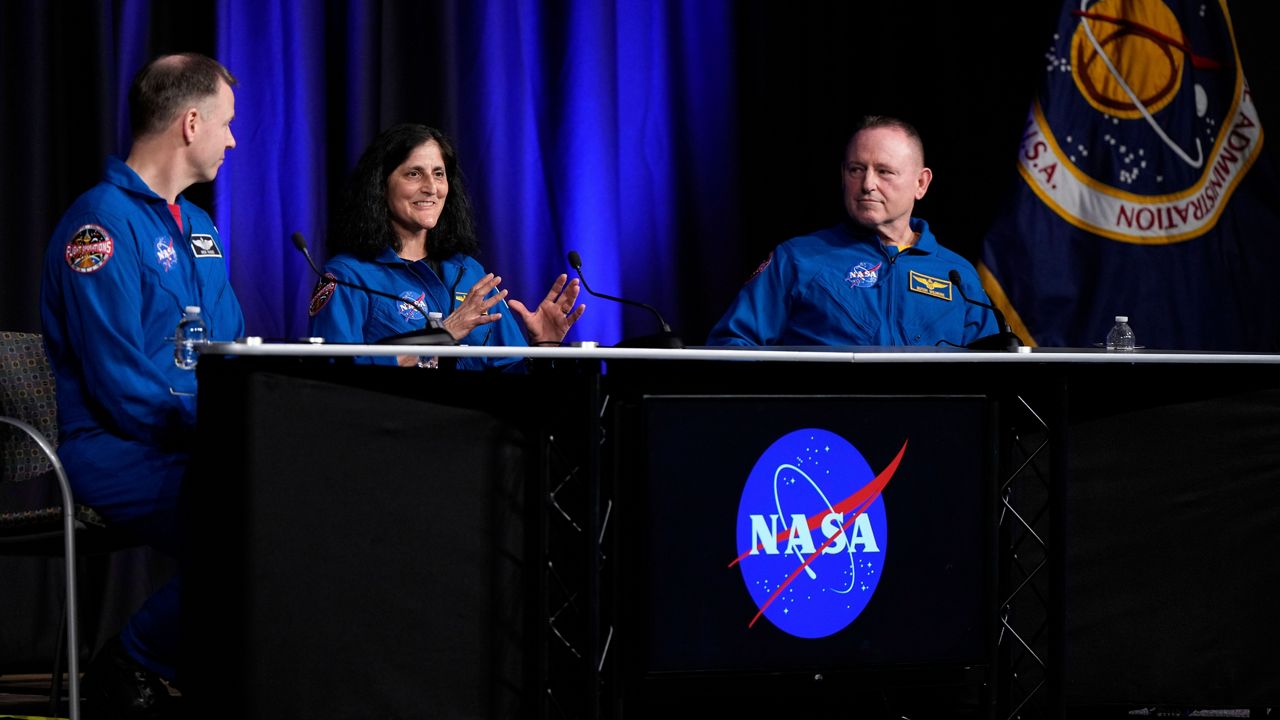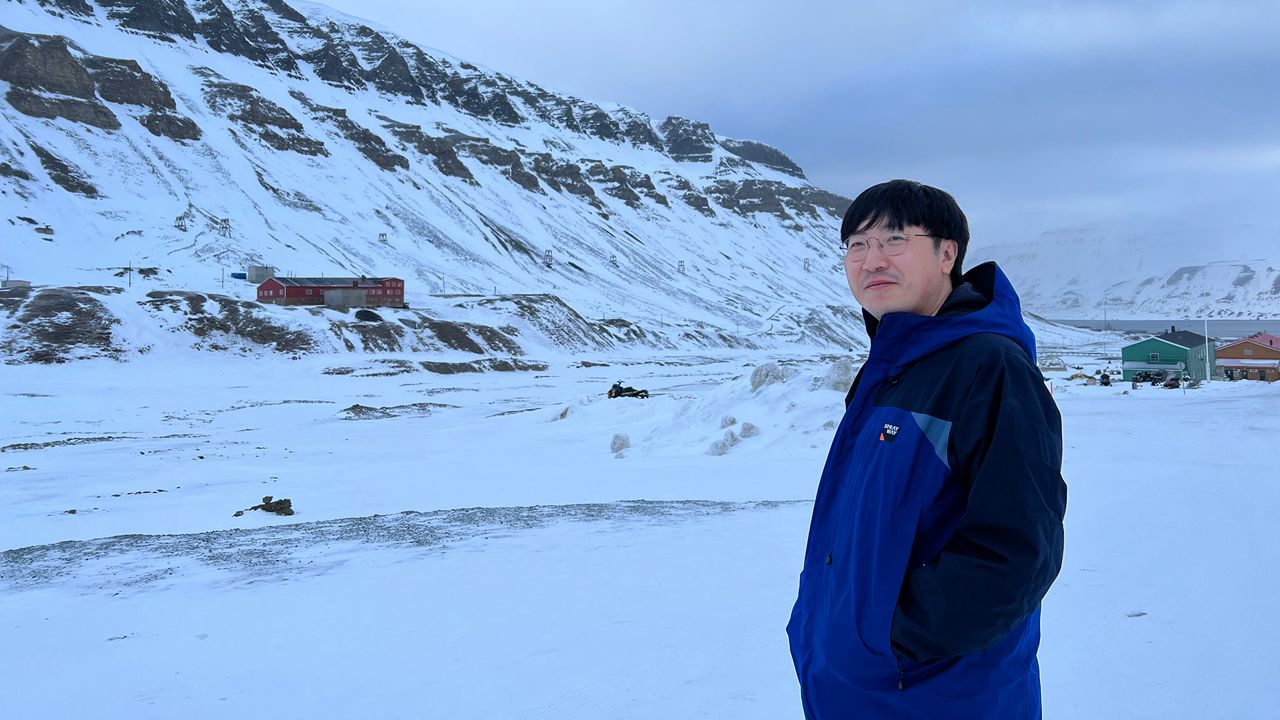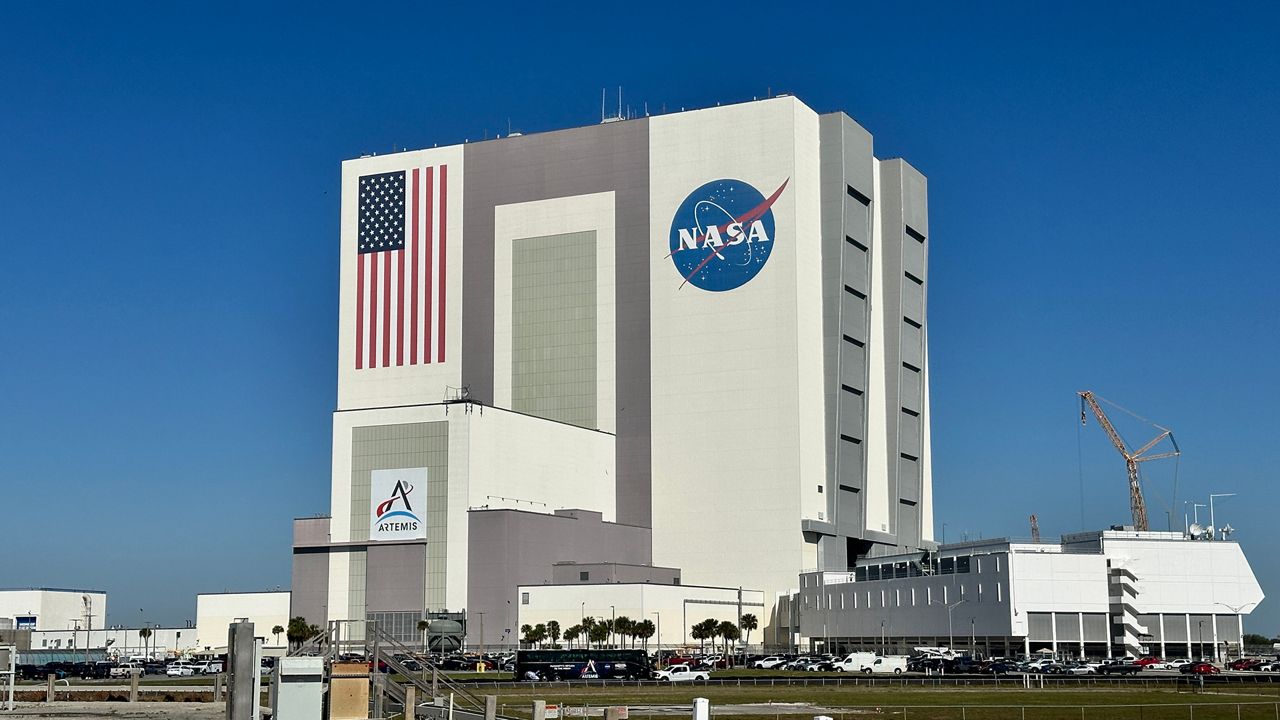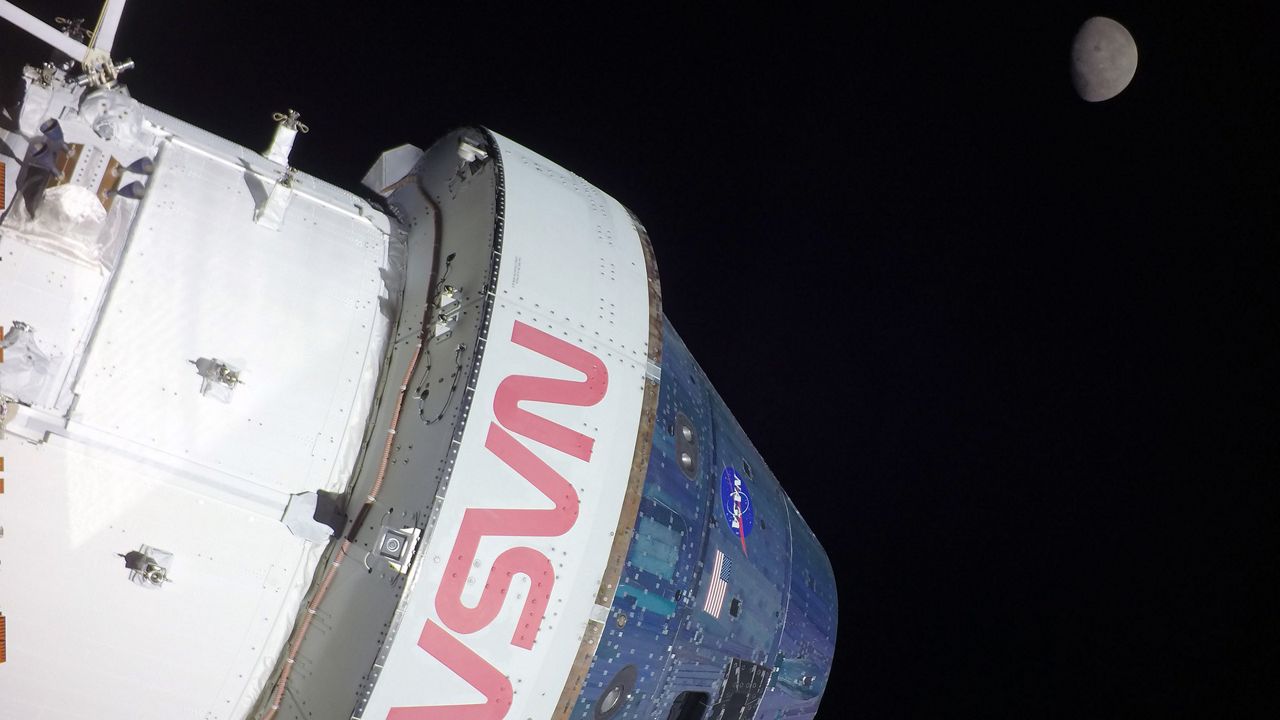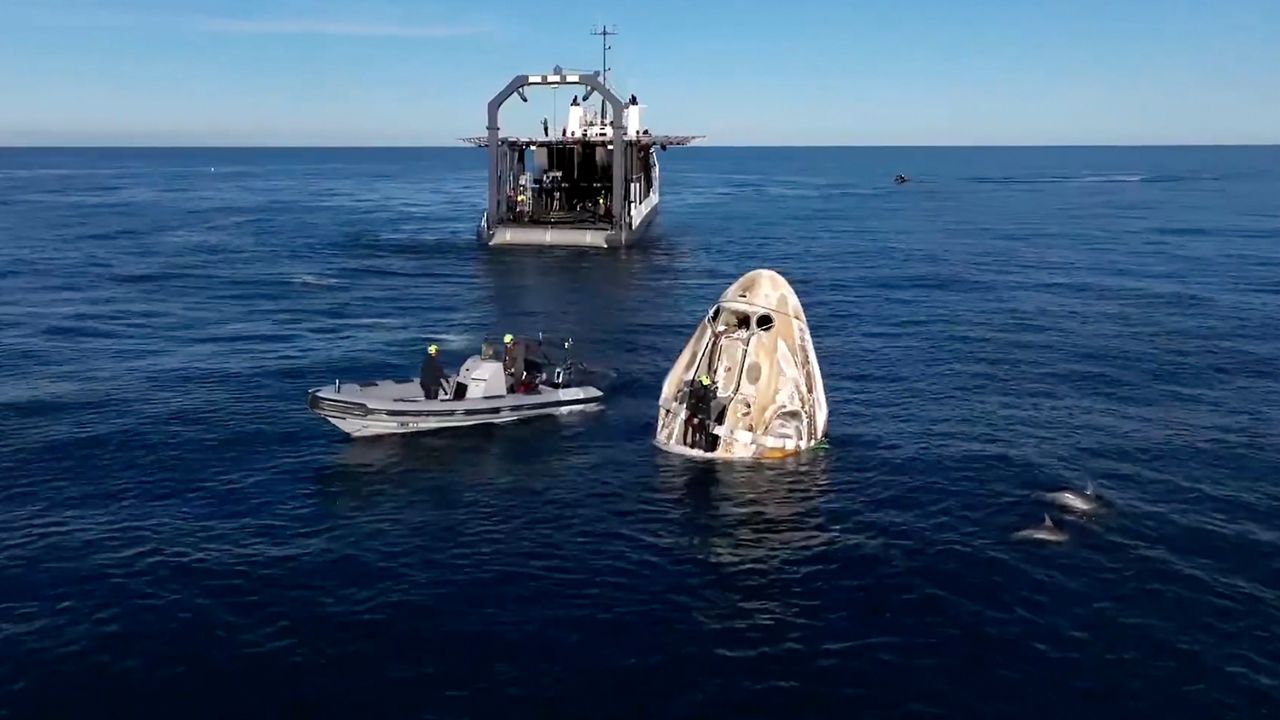From conducting the first commercial spacewalk to breaking a high-orbit record, one Polaris Dawn crewmember described returning to Earth as “the ride of the lifetime.”
Spectrum News sat down with pilot Scott "Kidd" Poteet and mission specialist Anna Menon to discuss their "out of this world" experience as members of the Polaris Dawn mission.
What You Need To Know
- Polaris Dawn's pilot Scott "Kidd" Poteet and medical officer Anna Menon sits down with Spectrum News and share their experiences
- They talk what it was like to experience incredible G forces and then bursting out of Earth's gravity and into space
- Get more space coverage here ▶
- RELATED coverage:
- Polaris Dawn returns home in splashdown
- Polaris Dawn and SpaceX make history in first commercial spacewalk
- SpaceX launches historic Polaris Dawn mission for a series of space firsts
- Polaris Dawn crew highlights a series of firsts before historic launch
- Polaris Dawn’s Scott Poteet: From veteran jet pilot to novice space pilot
- Polaris Dawn returns home in splashdown
- Polaris Dawn and SpaceX make history in first commercial spacewalk
- SpaceX launches historic Polaris Dawn mission for a series of space firsts
- Polaris Dawn crew highlights a series of firsts before historic launch
- Polaris Dawn’s Scott Poteet: From veteran jet pilot to novice space pilot
Last month, Polaris Dawn’s Jared Isaacman, Scott “Kidd” Poteet, Anna Menon, and Sarah Gillis climbed aboard SpaceX’s Dragon capsule and left Earth on SpaceX’s Falcon 9 rocket for a five-day mission that saw a series of firsts.
One historic achievement was orbiting six times above the Earth at 870 miles (1,400 km), smashing the record of the 1966 Gemini 11 mission in 1966, which achieved an altitude of 853 miles (1,373 kilometers).
Gillis and Menon — lead space operations engineers at SpaceX — became the first women to reach a high-altitude orbit.
Menon was a bit modest about breaking such a record.
Isaacman, a philanthropist and CEO of Shift4, funded the Polaris Program, which will see a total of three Polaris Dawn missions. The first one ended in a splashdown off the coast of Florida and the third one will see SpaceX's Starship being used.
Isaacman also funded the Inspiration4 mission in 2021, the first all-citizen spaceflight that he commanded. The Polaris Dawn mission, like Inspiration4, raised funds for St. Jude Children's Research Hospital.
Poteet, along with Menon, shared the thrill of launching into outer space, the view of Earth from the cosmos, and the importance of the 40 science and research missions they conducted.
Experiencing the Gs like never before
Poteet, an experienced fighter, test and commercial pilot, is a retired U.S. Air Force lieutenant colonel.
Both he and Isaacman are skilled pilots with thousands of flight hours between the two of them. Besides Isaacman, it was the first time to be in space for Poteet, Menon and Gillis.
And it was an experience that neither Poteet nor Menon will forget.
Understanding the experiments and why they are important
Menon and Poteet said some of the 40 science and research experiments were conducted on the four crewmembers before, during and after they returned to Earth - including a look at how blood flow is affected by microgravity.
One of the experiments assessed nasal airway. To conduct the experiment, Poteet and Menon had to numb their noses and slide a long, thin endoscopic camera up their nasal canal and down the backside of their throats to take pictures.
And the researchers who wanted to send experiments onto the Polaris Dawn did not have to pay anything because Isaacman funded the mission. It was a “free ride” for them, said Poteet, because the alternative would have cost thousands or tens of thousands of dollars to put an experiment on a rocket and have it go to the International Space Station.
Menon said a huge team of researchers submitted their proposals so they could be selected.
Once the mission was over, the data collected was given to the researchers.
And this research is needed. Various space agencies have been sending people into space since the 1960s and people have been onboard the International Space Station continuously for nearly 24 years.
But that is only 600 people who have been to space and Poteet and Menon, who was the medical officer for the mission, said that is not enough people to collect valid information about the human body in a microgravity environment, so continuous research through experiments is needed.
Sitting out on the spacewalk was OK with them
Both Menon and Poteet, 50, sat out, or technically, sat in the Dragon capsule while Isaacman and Gillis took turns conducting the first commercial spacewalk.
Isaacman because the first person in history to perform the historic spacewalk. Before the Polaris Dawn mission, all spacewalks were done by national space agencies, like NASA.
It was also the first time the interior of a Dragon capsule was exposed to the vacuum of space.
All four Polaris Dawn members wore SpaceX’s new extravehicular activity, or spacesuit. The new, slick suit has greater mobility with a state-of-the-art helmet that comes with a heads-up display and camera.
The 38-year-old Menon said she had no regrets about not doing the spacewalk.
‘It was the ride of the lifetime’
From taking off from Launch Complex 39A at the Kennedy Space Center and feeling the G forces to seeing the breath-taking views of Earth while floating around to the incredible ride of returning was, as Menon put it, out of this world.
After SpaceX’s Dragon capsule slowly touched down off the coast of Dry Tortugas, Florida, the capsule were taking on a recovery ship where a medical team checked out the four space explorers.
She said they got their land legs, or Earth legs, back in seconds. But the recovery team was there to help them should they fall.
Astronauts who have spent a certain amount of time in microgravity, like those onboard the International Space Station, do experience a sense of disorientation and will sometimes faint or fall or drop objects they are holding.
Their thoughts on the mission
When asked if he wanted to go into space again, Poteet said the Polaris Dawn mission was bigger than just one person and that Isaacman and SpaceX founder Elon Musk have a vision to make our species multi-planetary.
However, the mission left an impact on them.
One of the experiments was testing the laser communications from Starlink satellites in space, which was used for the four to communicate with their families in video calls. SpaceX owns the Starlink company.
Menon used this to read her book “Kisses from Space” to patients of St. Jude and her own family. The book is about a mother dragon who comes back from a trip in space and reunites with her children.
She said she did not realize her connection to the dragon and her until she too came back from her own space adventure.
And Poteet said that space travel might be a very routine thing for the next generation.




